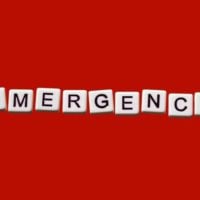Deadline: 06-Oct-21
The European Commission is seeking applications for the Transition to Healthy and Sustainable Dietary Behaviour Programme to understand better, and measure, factors influencing dietary behavior.
It also seeks to support the development of innovative, effective tools and strategies to facilitate the transition towards healthy and sustainable dietary behavior and self-management of dietary habits.
Scope
- Changes in food production, processing and consumption patterns have contributed to diet-related health problems worldwide. Non-communicable diseases (NCDs) such as cardiovascular diseases (CVDs), cancer, obesity, chronic respiratory diseases and diabetes account for 71% of all deaths.
- NCDs are largely preventable through effective interventions that tackle shared risk factors such as unhealthy diet, physical inactivity, tobacco use and the abuse of alcohol.
- According to the EAT-Lancet Commission, a shift from current diets to healthier diets is likely to benefit human health substantially, averting about 11 million deaths per year.
- Long-lasting, healthy and sustainable dietary behaviour needs to be given high priority from an early age, as good eating habits are usually formed in childhood.
- The change of dietary behaviour is a complex challenge subject to manifold influences that should be better understood at individual and system levels, and through public engagement and inter-/trans-disciplinary approaches.
- The development of new approaches/strategies/tools requires a systemic approach involving all the main actors at different levels, who can ensure acceptance of and better adherence to healthy and sustainable dietary behaviour.
- These include governmental and public authorities, healthcare providers, education systems from schools to universities, (local) producers, the food industry, retailers, hospitality and food services, non-governmental consumer and patient organisations, the general public, policymakers and the media.
Funding Information
Grant amount is equal to or greater than EUR 500 000 except for:
- public bodies (entities established as a public body under national law, including local, regional or national authorities) or international organisations; and
- cases where the individual requested grant amount is not more than EUR 60 000 (lowvalue grant).
Expected Outcomes
- In line with the European Green Deal priorities, the farm to fork strategy for a fair, healthy and environment-friendly food system, and the EU’s climate ambition for 2030 and 2050, the successful proposal will support R&I to facilitate the transition towards healthy and sustainable dietary behaviour.
- It will contribute to the transformation of food systems to deliver co-benefits for climate (mitigation and adaptation), biodiversity, environmental sustainability and circularity, dietary shift, sustainable healthy nutrition and safe food, food poverty reduction and empowerment of communities, and thriving businesses.
- Project results are expected to contribute to all of the following outcomes:
- improved knowledge and understanding of the factors influencing the dietary behaviour of different target groups (in particular vulnerable groups) across Europe, including barriers and constraints;
- identification of effective means whereby each food system actor can foster behavioural change;
- enabling consumers to make informed food choices;
- a scientific basis for dietary advice to support policymakers and Member States that will empower individuals to adopt healthy and sustainable dietary behaviours, choices and lifestyles, as a win-win for their health and the environment, building on the advice of competent bodies at national, EU and international levels; and
- a better scientific basis on which policymakers could develop communication strategies that would increase the acceptability of food and health policy interventions by all actors and sectors that aim to support a shift towards healthy and sustainable diets for all, bearing in mind that education and dietary advice is a national competence.
Eligibility Criteria
- Any legal entity, regardless of its place of establishment, including legal entities from non-associated third countries or international organisations (including international European research organisations) is eligible to participate (whether it is eligible for funding or not), provided that the conditions laid down in the Horizon Europe Regulation have been met, along with any other conditions laid down in the specific call topic.
- A ‘legal entity’ means any natural or legal person created and recognised as such under national law, EU law or international law, which has legal personality and which may, acting in its own name, exercise rights and be subject to obligations, or an entity without legal personality.
- To be eligible for funding, applicants must be established in one of the eligible countries, i.e:
- the Member States of the European Union, including their outermost regions;
- the Overseas Countries and Territories (OCTs) linked to the Member States;
- eligible non-EU countries:
- countries associated to Horizon Europe
- low- and middle-income countries
For more information, visit https://bit.ly/2Utkmrk









































